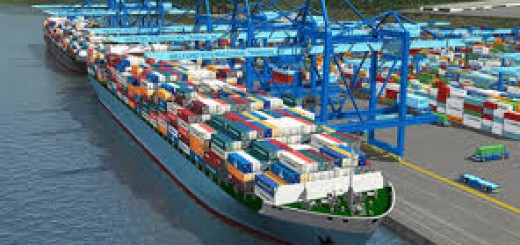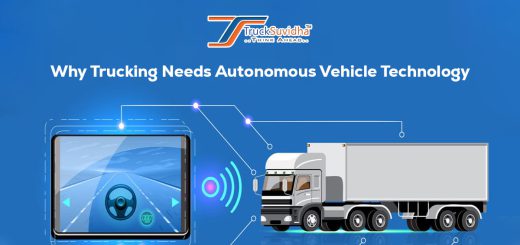Exploring Alternative Fuel for the Trucking Industry
Trucking is vital to worldwide trade, yet it heavily depends on non-renewable fossil fuels, causing substantial environmental harm. Amidst growing concerns over sustainability, the trucking sector’s shift towards alternative energy sources is gaining momentum. These alternatives aim to cut greenhouse gas emissions, lessen dependence on depleting reserves, and minimize ecological impact. This piece examines the prospect of cleaner fuels in the trucking business, highlighting their advantages, diverse kinds, obstacles, inspiring examples, regulatory measures, and incentives.
Furthermore, it sheds light on upcoming possibilities that could lead to a greener pathway for freight transportation. Embracing eco-friendly solutions promises reduced pollution and fosters innovation and economic growth, making it a win-win situation for businesses and the environment.
The Environmental Impact of Traditional Fuel in Trucking
The use of traditional fuel, such as diesel, in trucks results in a notable release of pollutants that have negative impacts on both the environment and human health. These pollutants, including particulate matter, nitrogen oxides (NOx), and carbon dioxide (CO2), contribute to smog, respiratory issues, and climate change.
Given that the trucking industry is a significant source of these emissions, it is imperative to explore cleaner and more environmentally friendly alternatives. Transitioning to alternative fuels can help pave the way toward a more sustainable future while ensuring that commerce continues to thrive.
Benefits of Implementing Alternative Fuel in Trucking Operations
Reducing Carbon Emissions and Environmental Footprint
A major benefit of employing alternative fuels within the trucking industry involves diminished carbon emissions and environmental effects; options like biodiesel, natural gas, and electric power generate substantially lower—or even nonexistent—greenhouse gases than conventional counterparts, thereby contributing positively toward climate goals.
By making the switch, the trucking industry can play a crucial part in combating climate change and improving air quality. It’s a win-win situation, as reducing carbon emissions benefits the environment and improves communities’ health and well-being along trucking routes.
Cost Savings and Economic Benefits
It’s frequently assumed that pursuing eco-friendly practices entails excessive expenditures; however, transitioning to alternative fuels in trucking operations might actually result in considerable financial gains in the long term. Although upfront costs may appear steep. But harnessing alternative fuels tends to provide consistent and dependable pricing structures, contrasted with customary fuels vulnerable to market fluctuations.
Moreover, certain alternative fuels qualify for government subsidies and funding programs, augmenting the favorable monetary aspects related to conversion. Eco-awareness extends beyond mere compliance. It enables trucking firms to capitalize on emerging clientele segments valuing responsible transport methods while simultaneously bolstering profits through strategic resource allocation decisions.
Types of Alternative Fuel for the Trucking Industry
Biofuels: Exploring Biodiesel and Ethanol
Biofuels, derived from renewable resources such as plants, have gained popularity in recent years as a cleaner alternative to traditional fuel. Biodiesel, made from vegetable oils or animal fats, can be used in existing diesel engines without any significant modifications. Ethanol, on the other hand, primarily comes from corn or sugarcane and is often mixed with gasoline for use in vehicles.
Natural Gas: Compressed Natural Gas (CNG) and Liquefied Natural Gas (LNG)
Natural gas, a fossil fuel alternative, is comparatively cleaner than diesel or gasoline. Compressed Natural Gas (CNG) and Liquefied Natural Gas (LNG) are both forms of natural gas that can be used as fuel for trucks. CNG is stored under pressure, while LNG is supercooled to a liquid state for transportation.
Electricity: Battery Electric Vehicles (BEVs) and Hydrogen Fuel Cells
Electrification offers great promise for trucks: Battery Electric Vehicles (BEVs) store electricity in big batteries driving motors, whereas Hydrogen Fuel Cell systems create power via hydrogen & oxygen fusion. Each option carries distinct merits & constraints; selection criteria include supply accessibility, supporting facilities, and functional needs.
Also Read:- How Can Integrated TMS Help Drivers Have a More Pleasant Work Environment?
Future Outlook and Opportunities for Alternative Fuel in the Trucking Industry
Technological Advancements and Innovation in Alternative Fuel
The future of alternative fuel in the trucking industry is looking brighter than ever. Thanks to constant technological advancements and innovation. Exciting breakthroughs are happening, paving the way for even more sustainable and efficient fuel options.
From electric trucks with longer ranges to advanced fuel cell technologies, the possibilities are endless. As the technology improves, so does the viability and practicality of alternative fuel for the trucking industry. So buckle up, folks, because we’re heading towards a greener and more exciting future.
Collaboration and Partnerships Driving the Growth of Alternative Fuel in Trucking
One of the keys to the widespread adoption of alternative fuel in the trucking industry lies in collaboration and partnerships. When different stakeholders come together – trucking companies, fuel providers, government bodies, and environmental organizations – it creates a powerful force for change.
By working together, these entities can share knowledge, resources, and insights, driving the growth and acceptance of alternative fuels. This collaboration has the potential to revolutionize the trucking industry, making it more sustainable, cost-effective, and environmentally friendly. It’s truly a team effort, and the possibilities are extraordinary.
Conclusion
While there are challenges to overcome, the promise of a greener and more sustainable future for the trucking industry is bright. By embracing these alternatives, we can revolutionize the way goods are transported while contributing to the fight against climate change. So, let’s hit the road to a cleaner, greener future.




Recent Comments